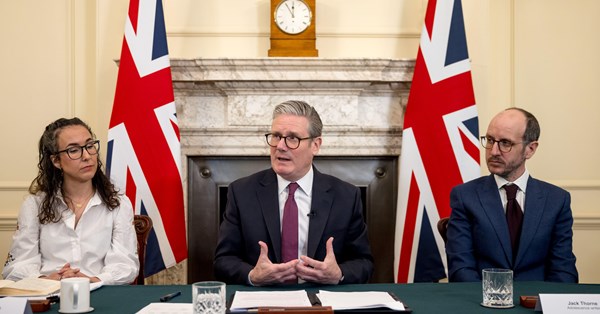WRITING about the Mods and Rockers in the 1960s, the sociologist Stanley Cohen outlined the concept of a moral panic. This was when a phenomenon or group of individuals becomes defined as a threat to established social or cultural values. I wonder whether we are having one now about fears of toxic masculinity.
The Netflix drama Adolescence has become a focal point for such anxieties, with its potent mix of teenage stabbing, internet misogyny, online radicalisation, bullying inside and outside the classroom, and sideways references to the vile misogynist Andrew Tate and incel culture (TV, 28 March, Analysis, 4 April). It has caused such a stir that the Prime Minister declared that “the documentary” should be shown in schools as a warning to Britain’s wayward youth.
Except, of course, it is not, despite what Sir Keir said, a documentary. It is a work of fiction, and it asks questions rather than provides answers. Why has the father’s anger been passed on to his volatile son, but not his lovely daughter? What, exactly, has the 13-year-old killer seen on the internet? How should we handle cruel online bullying? Why are some schools little more than holding pens for out-of-control teenagers? How bad is misogyny in British society?
Moral panics arise from the exaggerated perception that some forms of behaviour, individuals, or groups are so dangerously deviant that they pose a threat to society. But who decides? Cohen warns against self-appointed moralists. We have plenty of those in the media today. One commentator recently opined that “one of the most depressing sentences of 2025” is “boys are more likely now to own a smartphone than to live with their dad.” Such powerful memes are loaded with inference and innuendo, like the assumption that smartphones are in all ways bad. Such tropes frequently mistake correlation for causation.
What we need to consider is evidence. Two-thirds of “manosphere” videos do not mention women and girls, according to research by Marcus Gilroy-Ware, an academic specialising creative digital media. “Ideas about being a man are multi-coded,” he says. Most videos are about fitness and entrepreneurship. The idea of “man” is contrasted as much with “boy” as with “woman”.
The evolutionary psychologist William Costello, who is the UK’s leading academic expert on involuntary celibates, says that incel violence is extremely low, especially compared with that associated with drill music — a fast, dark, violent mix of grime and rap. He also points out that Andrew Tate hates incels, and they hate him. The Centre for Social Justice report Lost Boys identifies the areas — in health, education, and career prospects — where boys are being allowed to fall behind girls who have the movement of feminism for support.
Both Adolescence and much of the reaction to it show that the problem is as much adults’ as teenagers’. The Netflix series is a drama not about teenagers who are off the rails so much as about parents who are failing, both individually and societally. The adults throughout the series — tired, overstretched, distracted — repeatedly substitute their prejudices for listening and discernment. Adolescence does not need to be shown in schools, where it may cause harm. It needs to be seen by adults who do not understand what their sons and daughters are crying out to tell them.

















